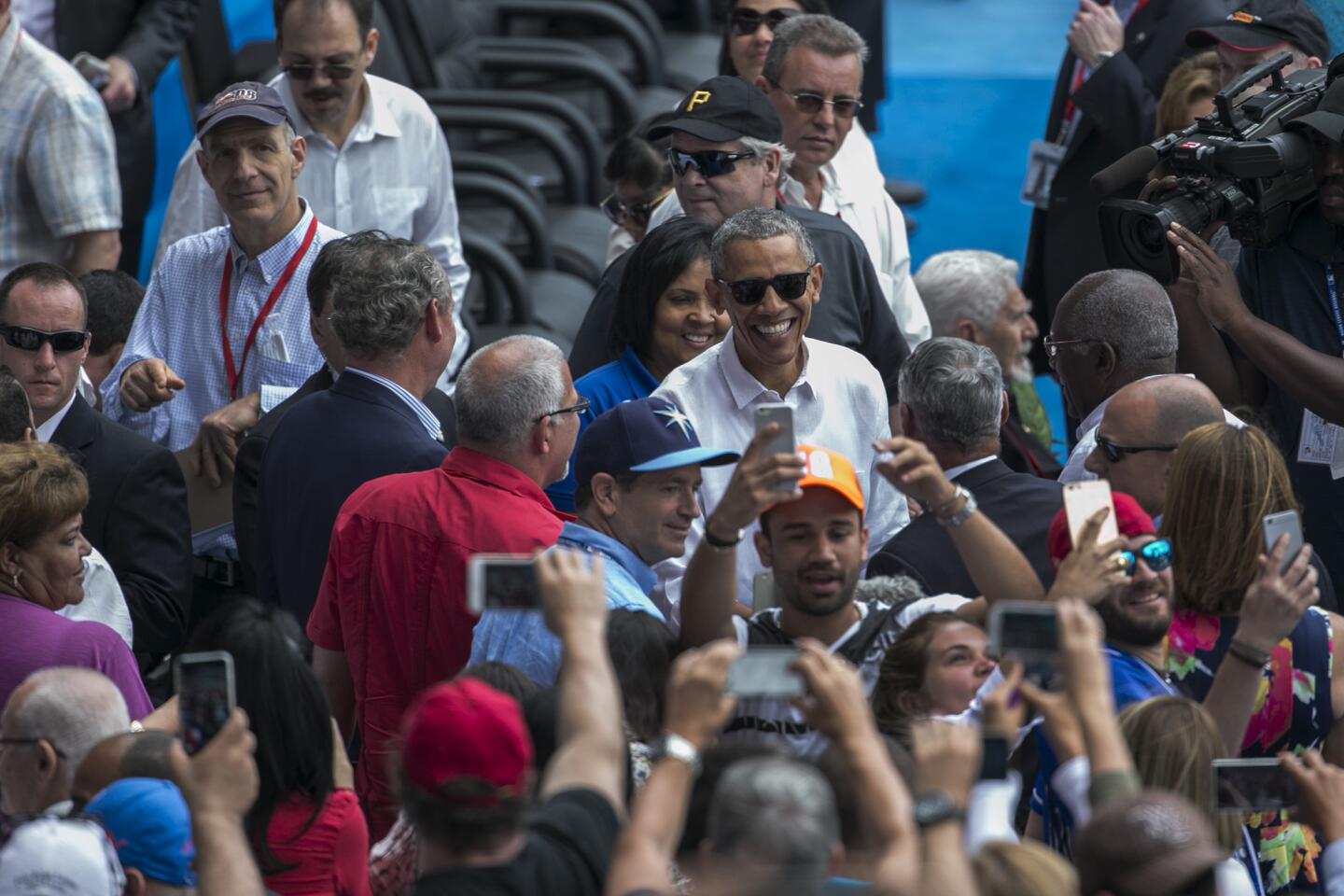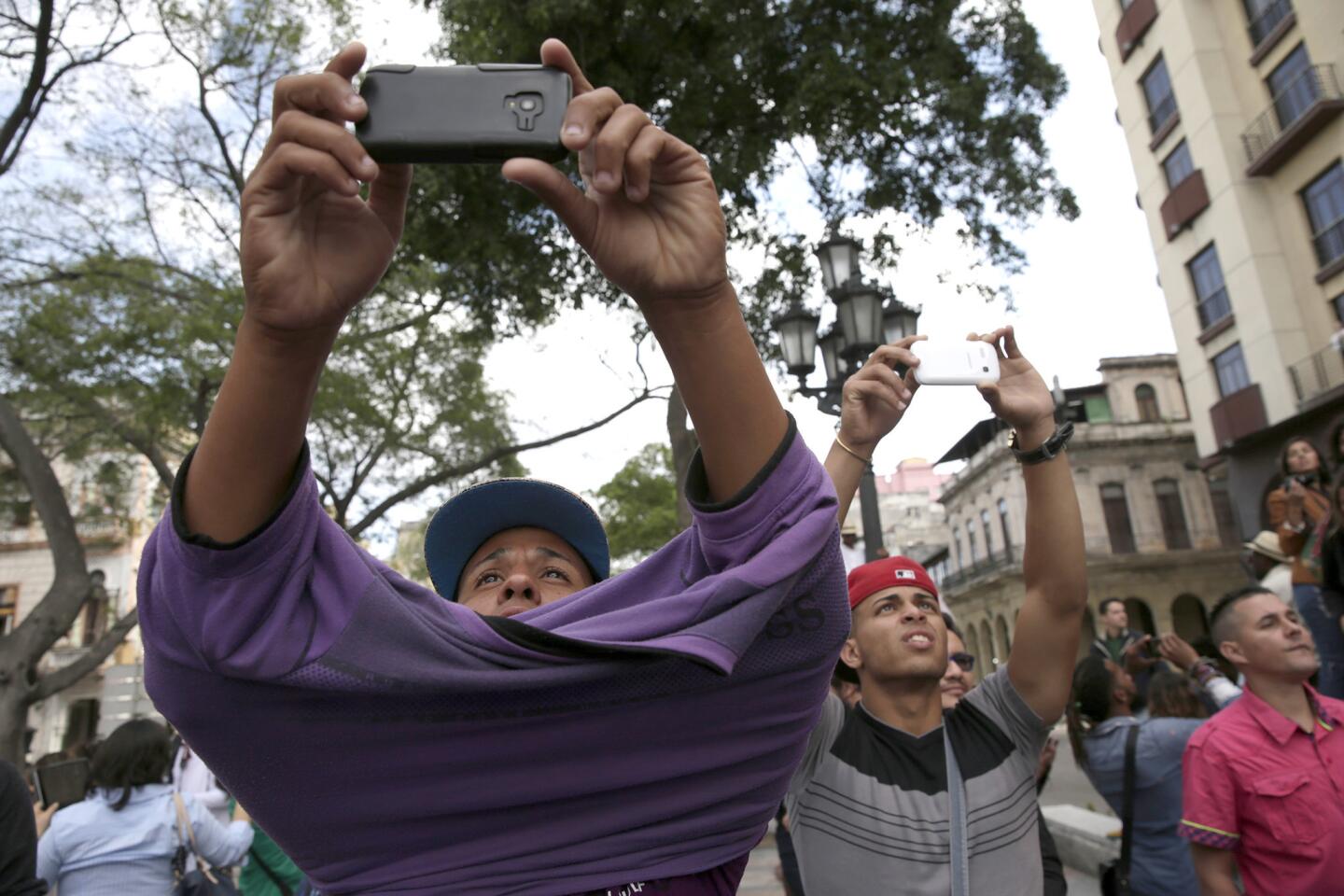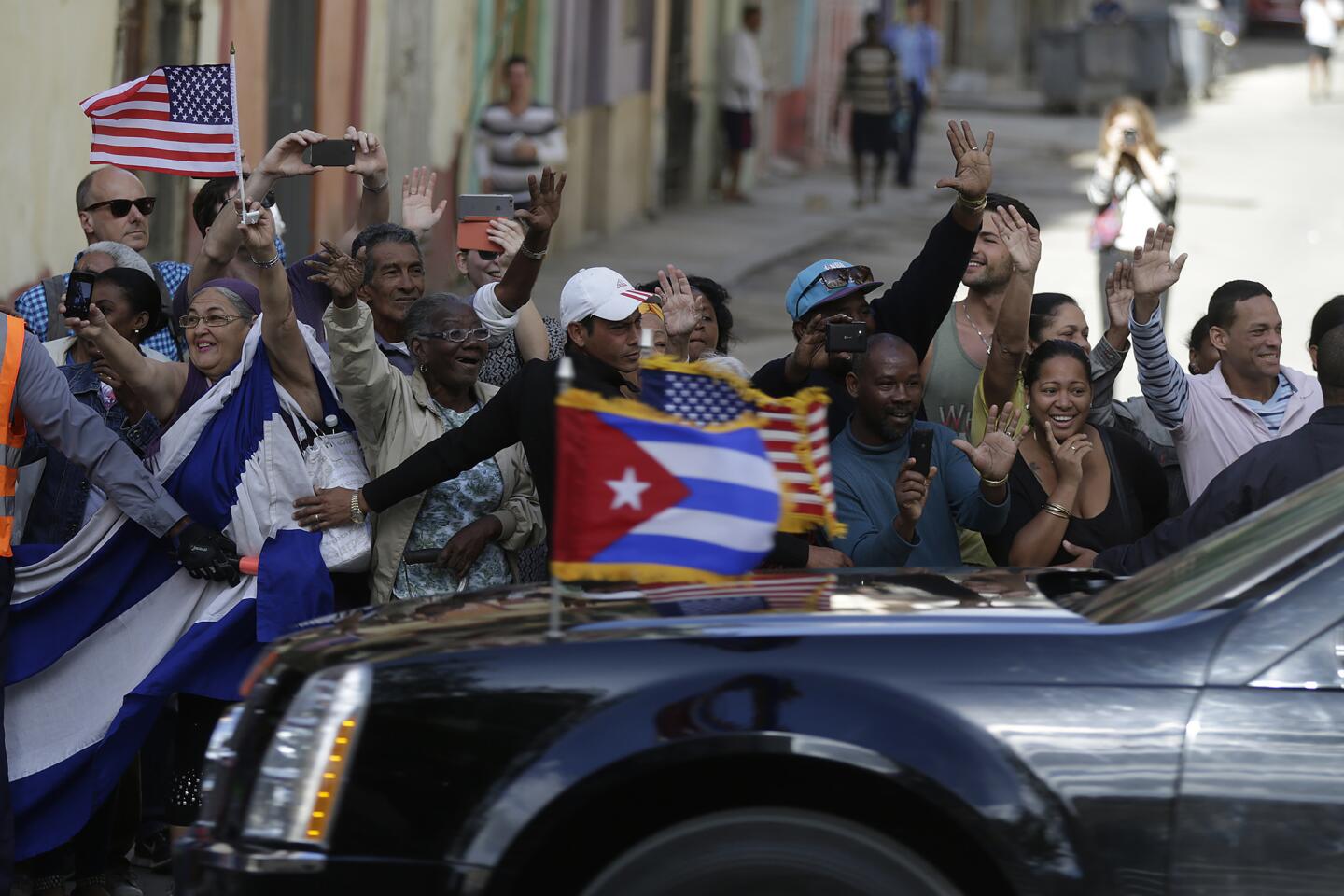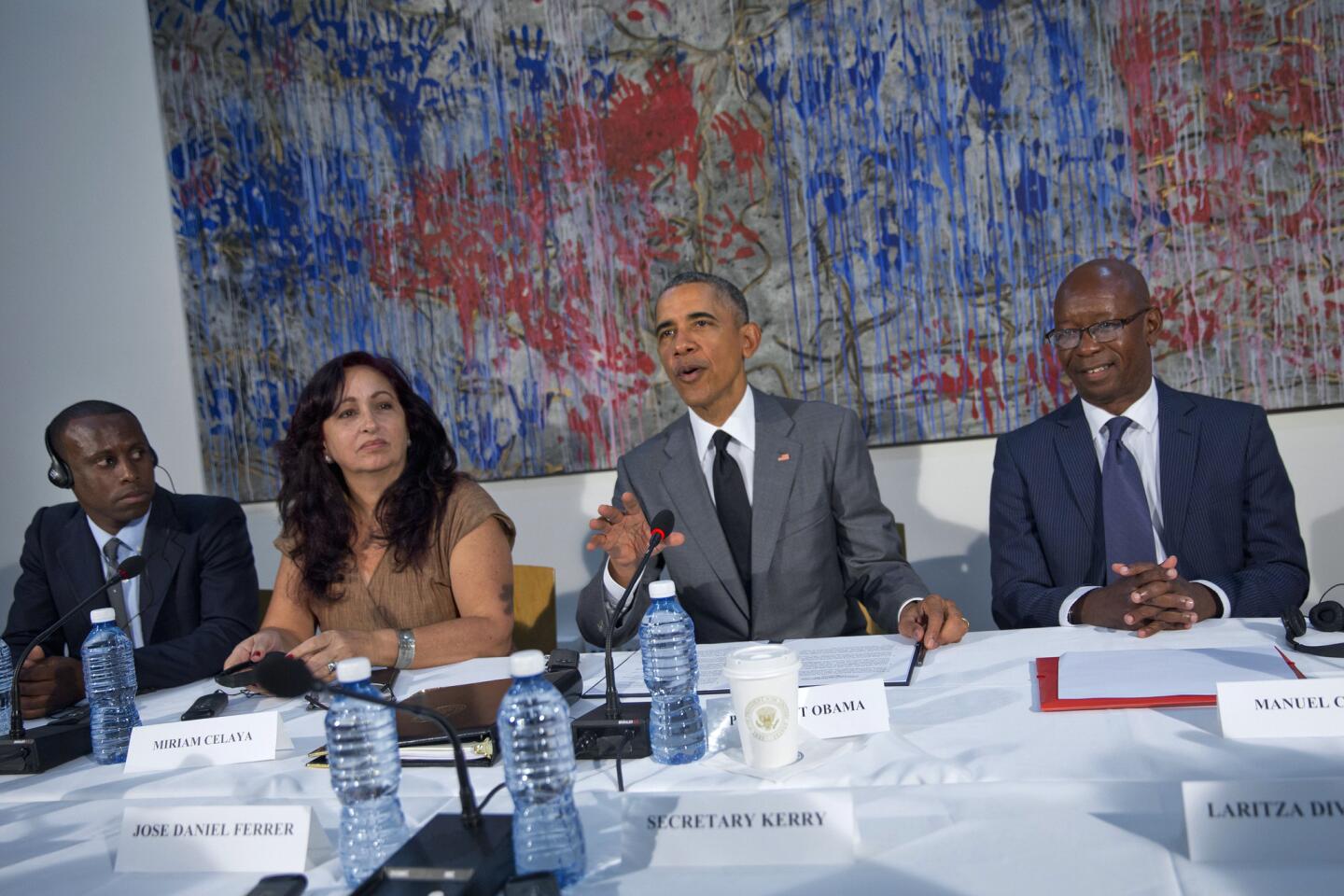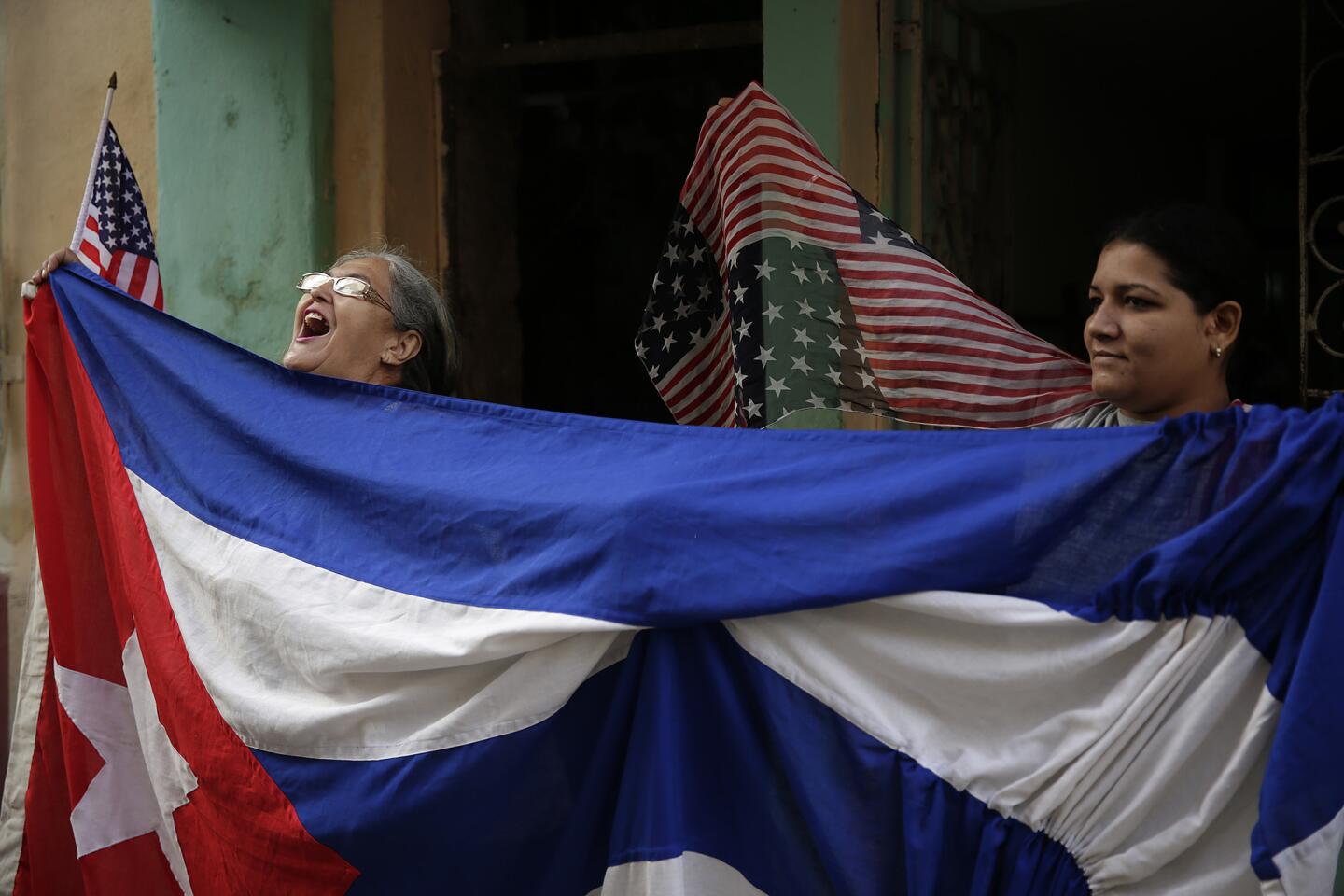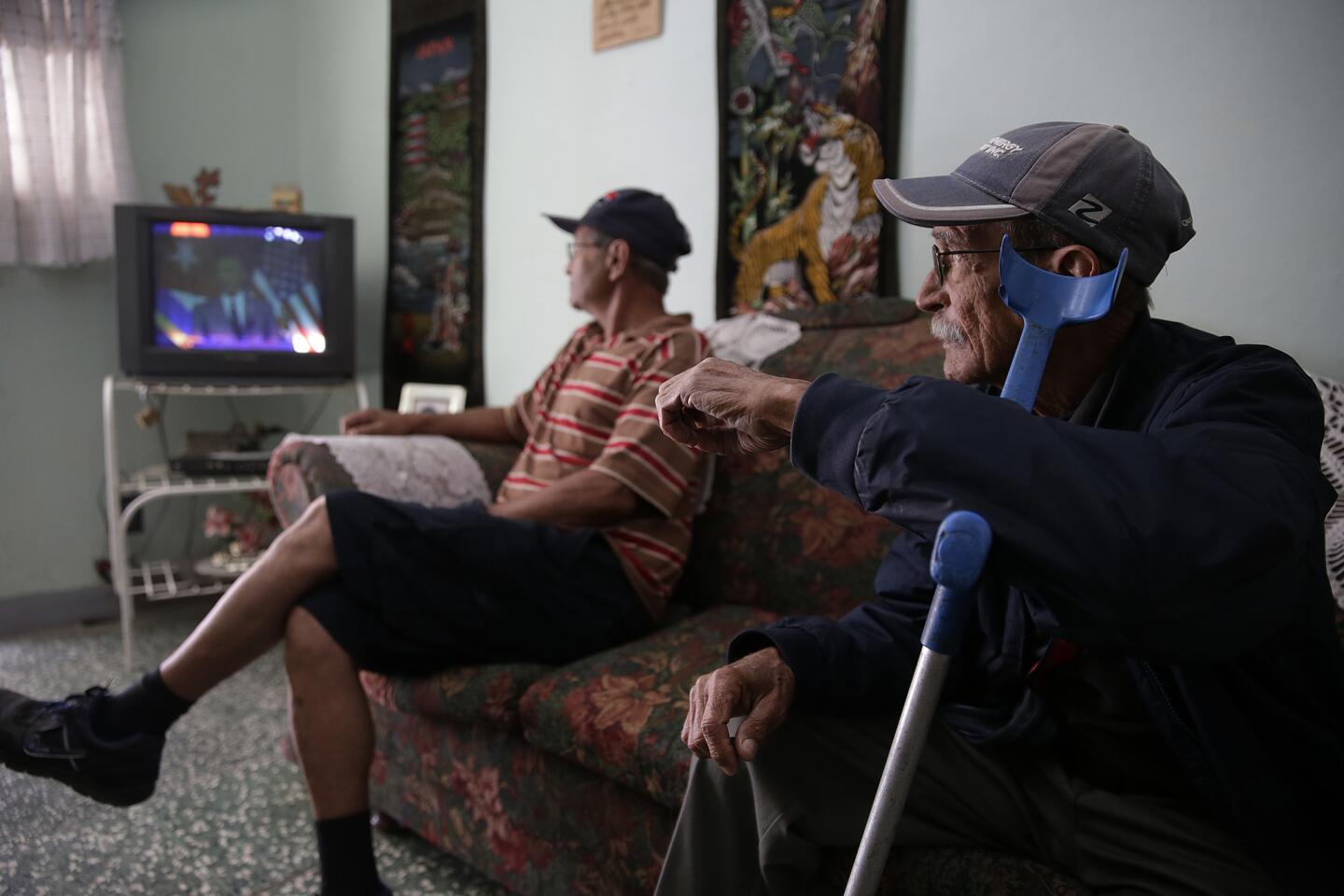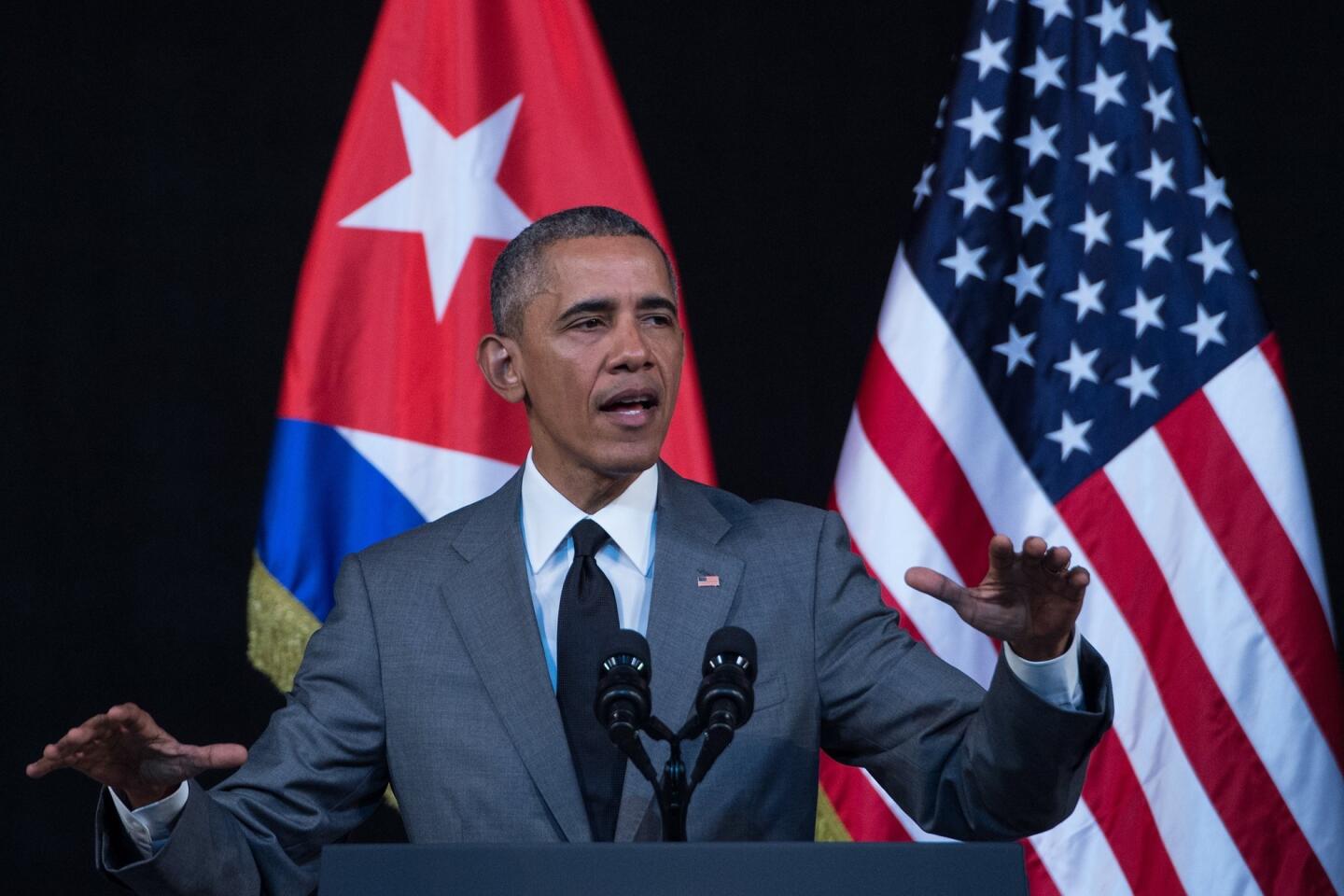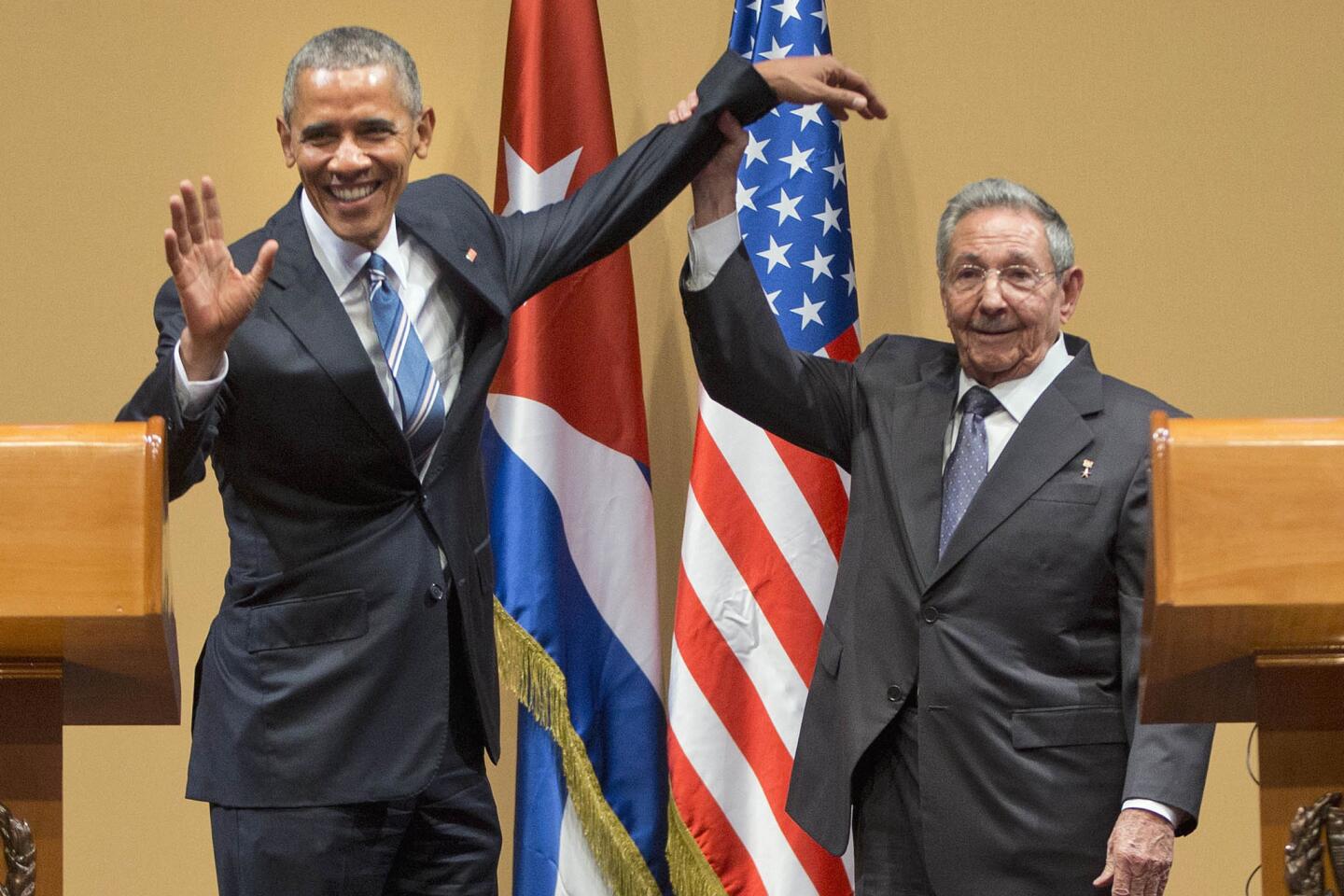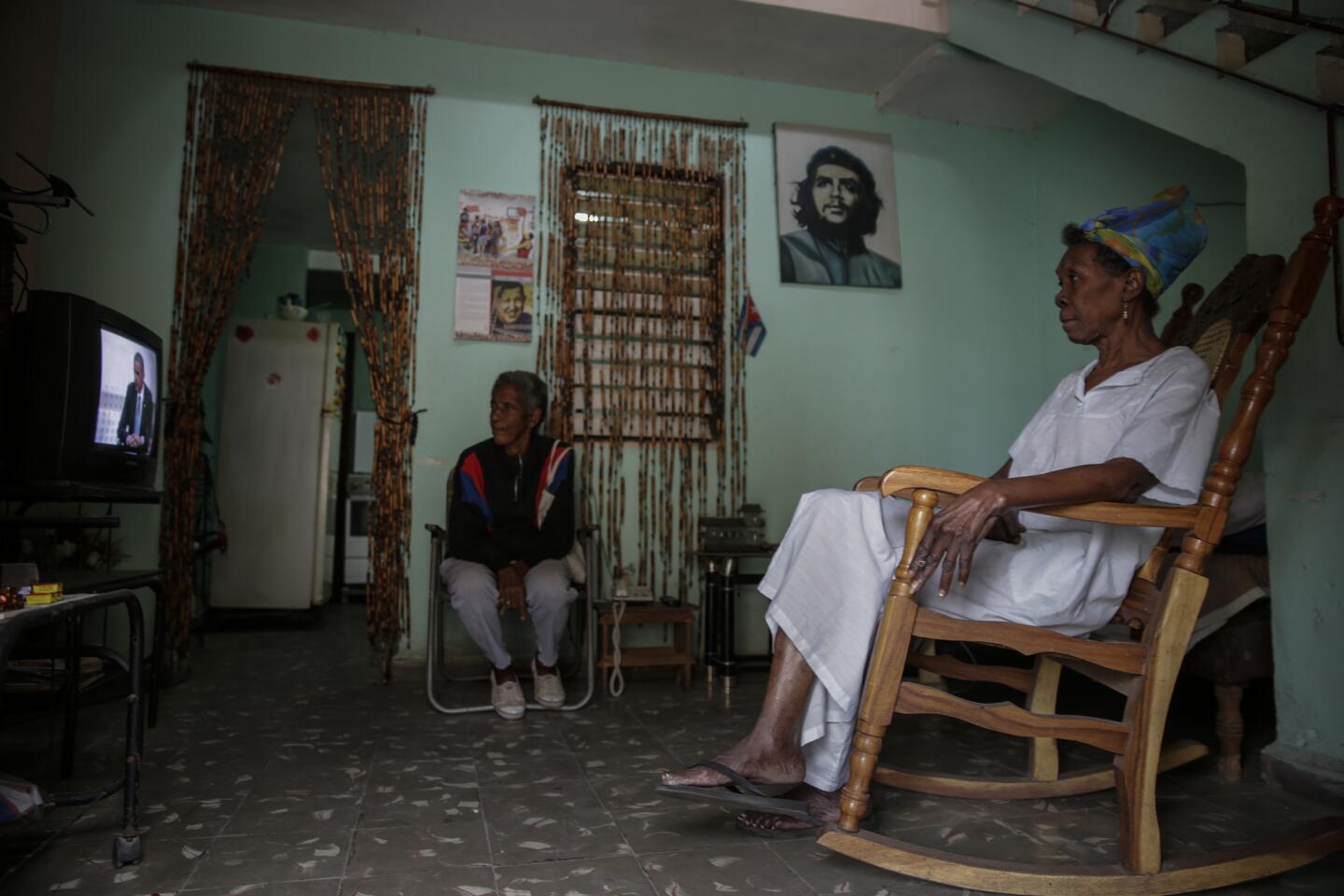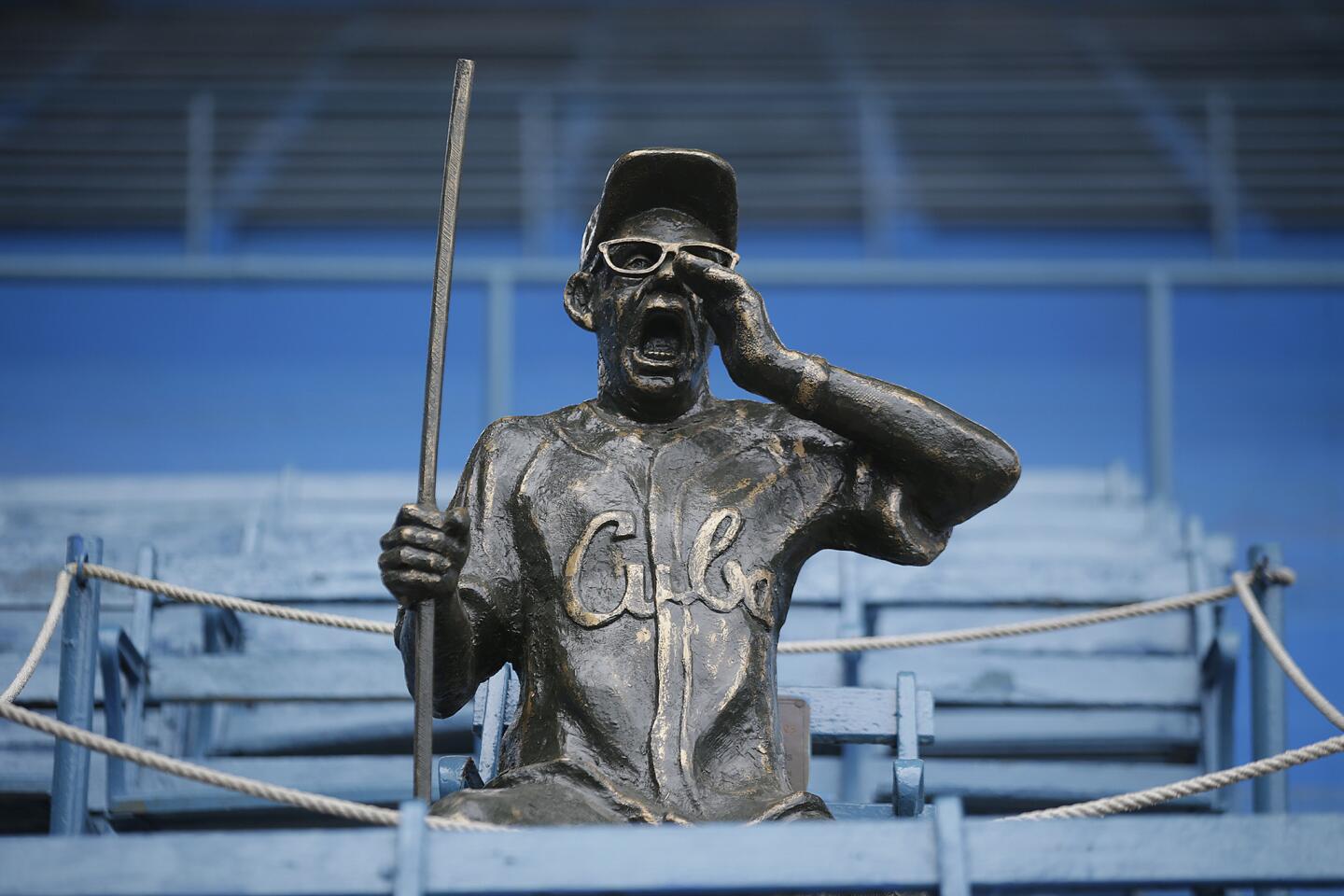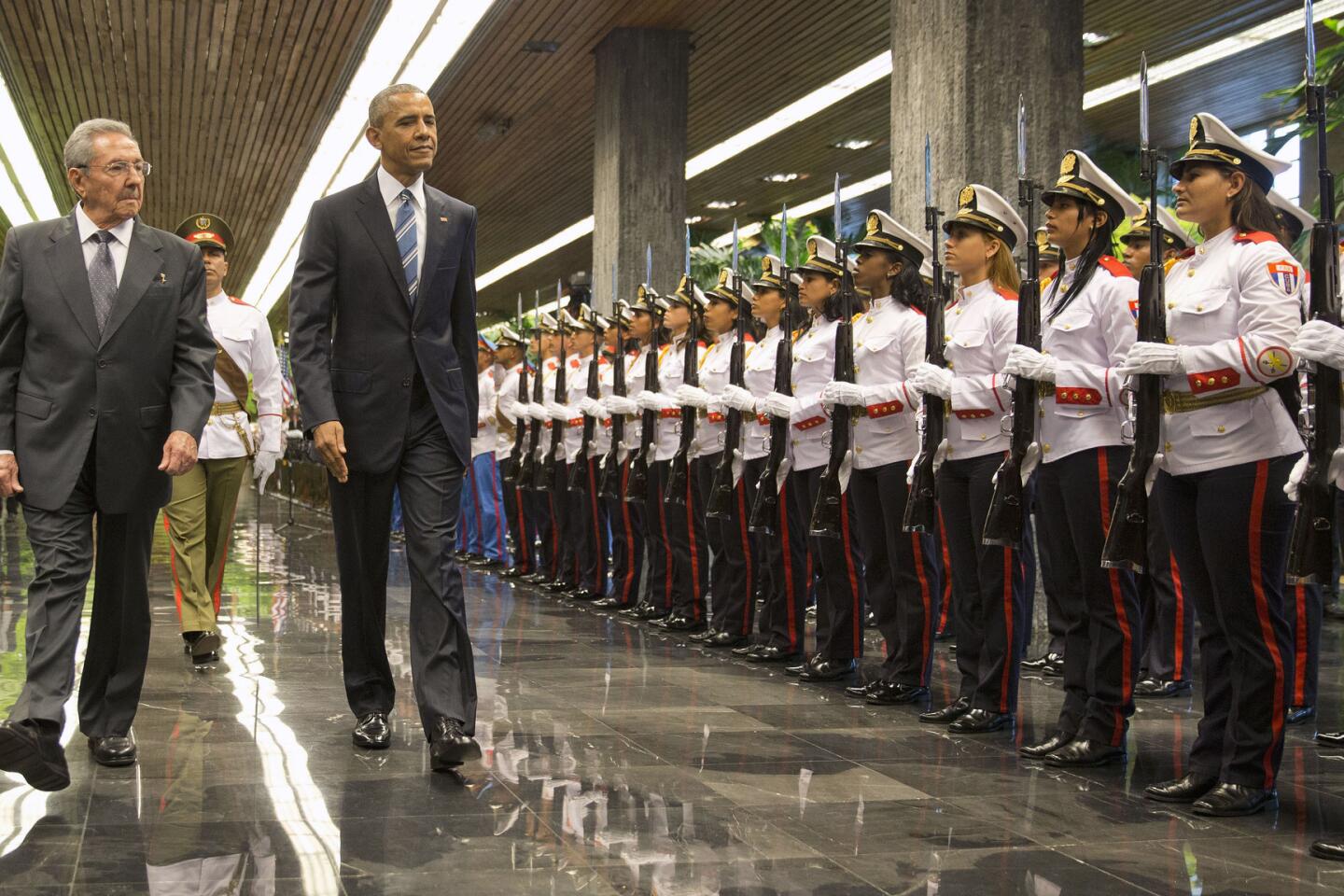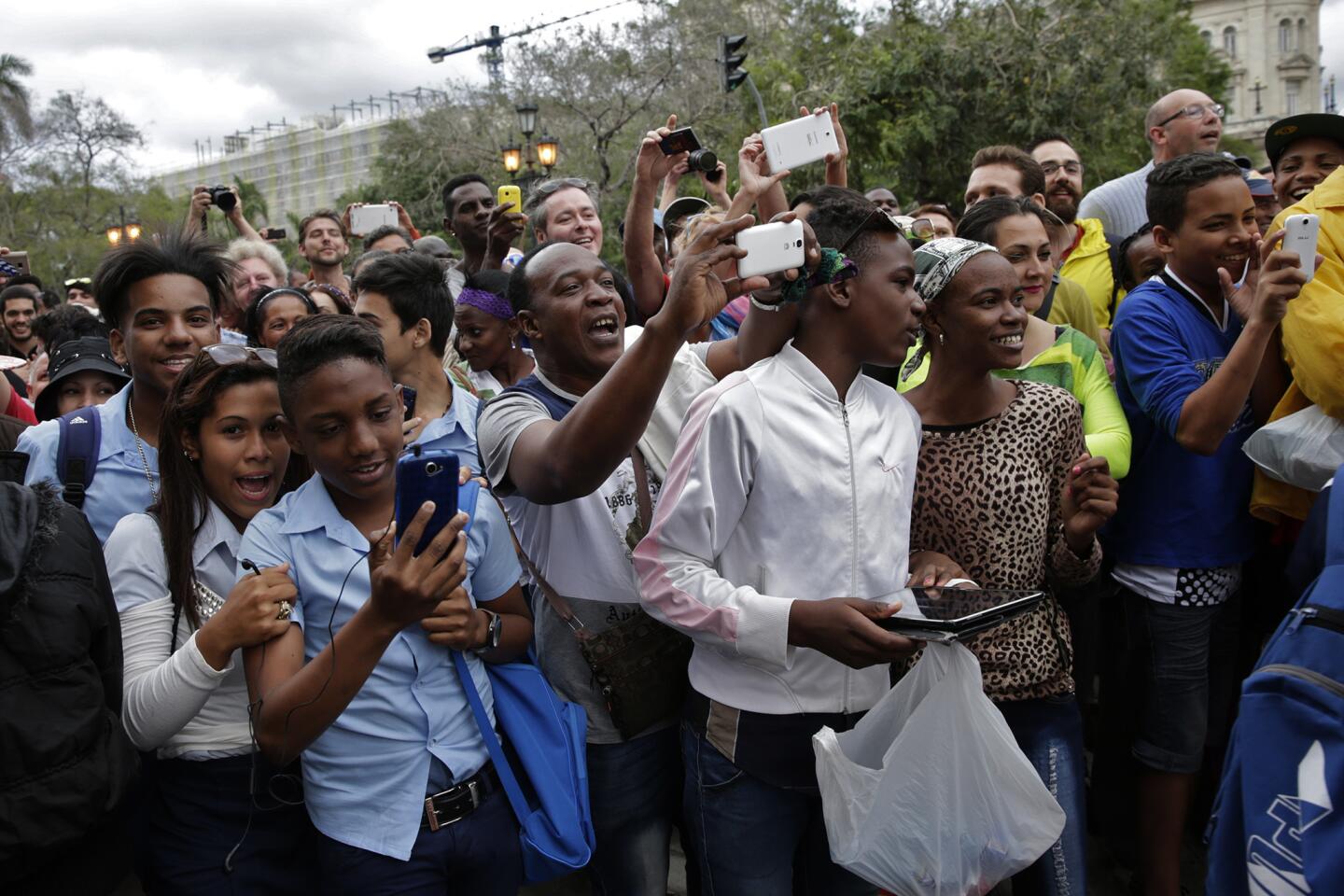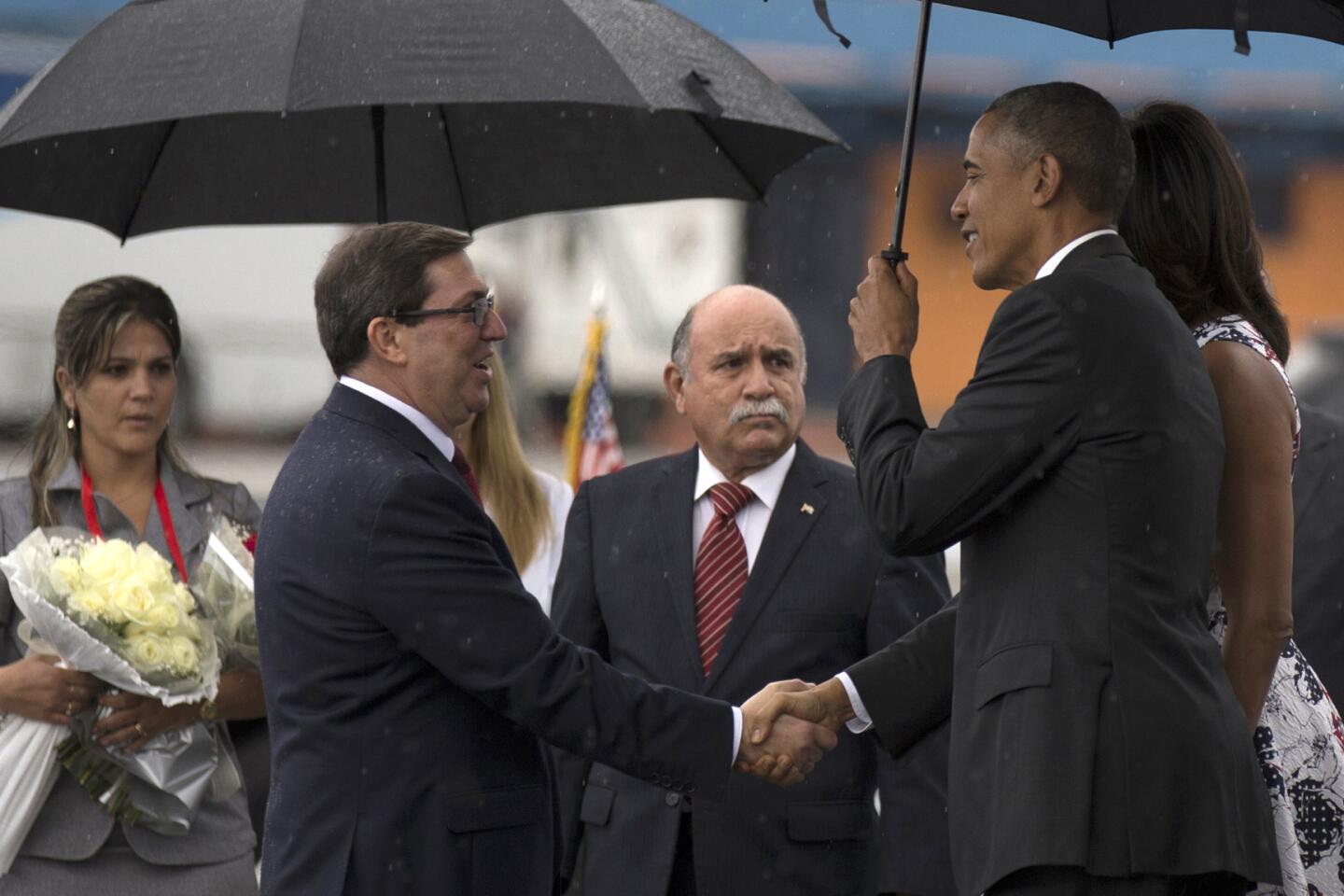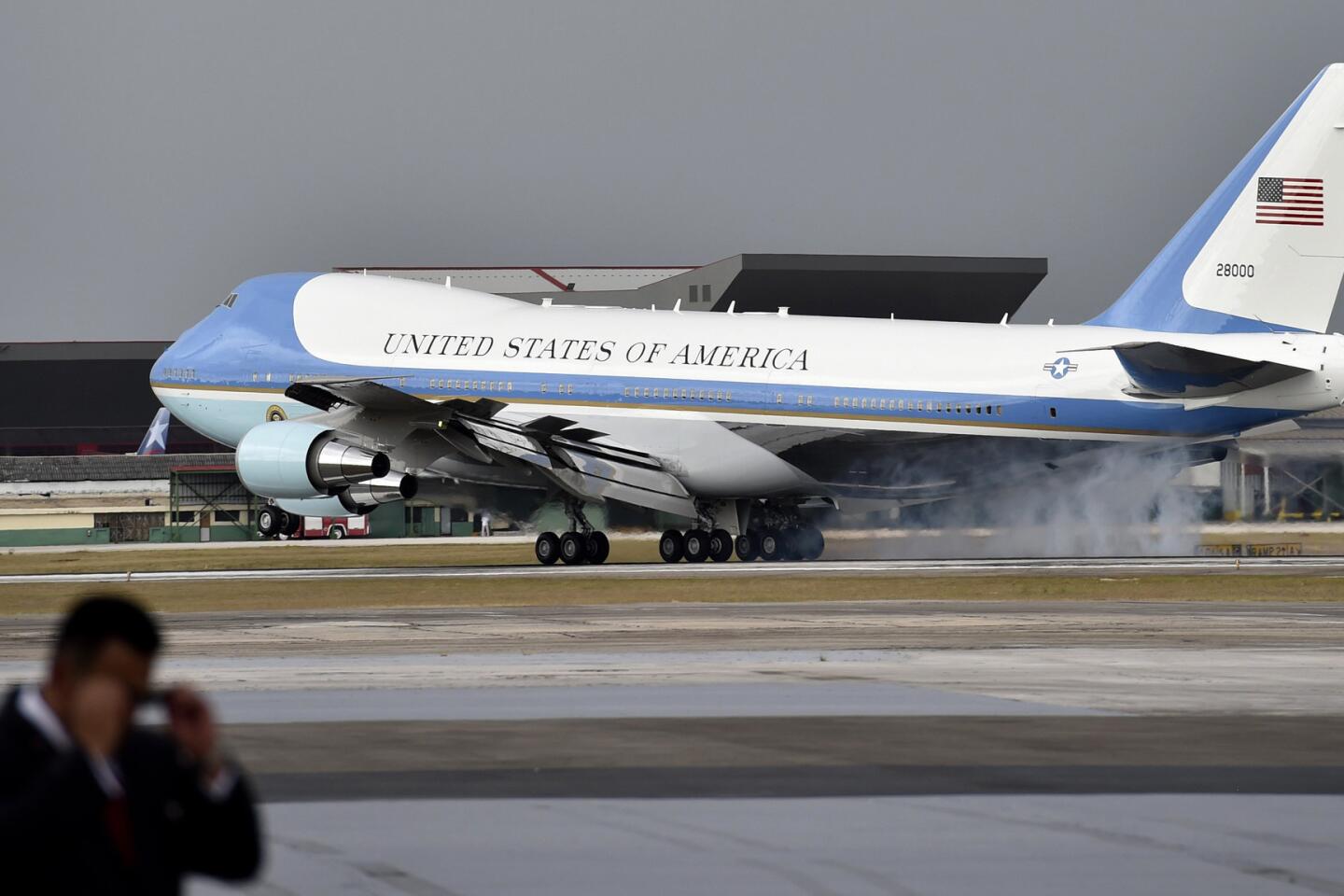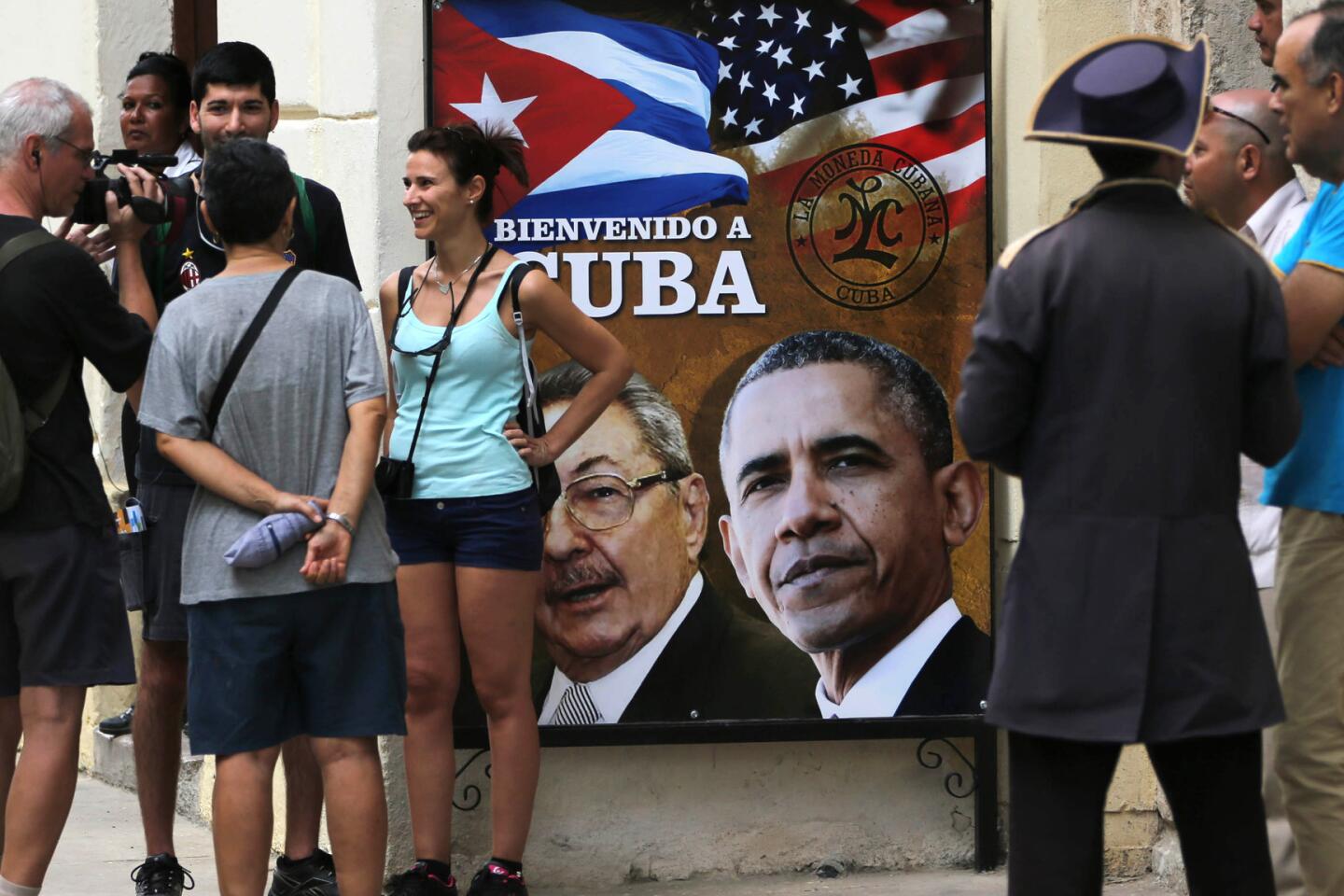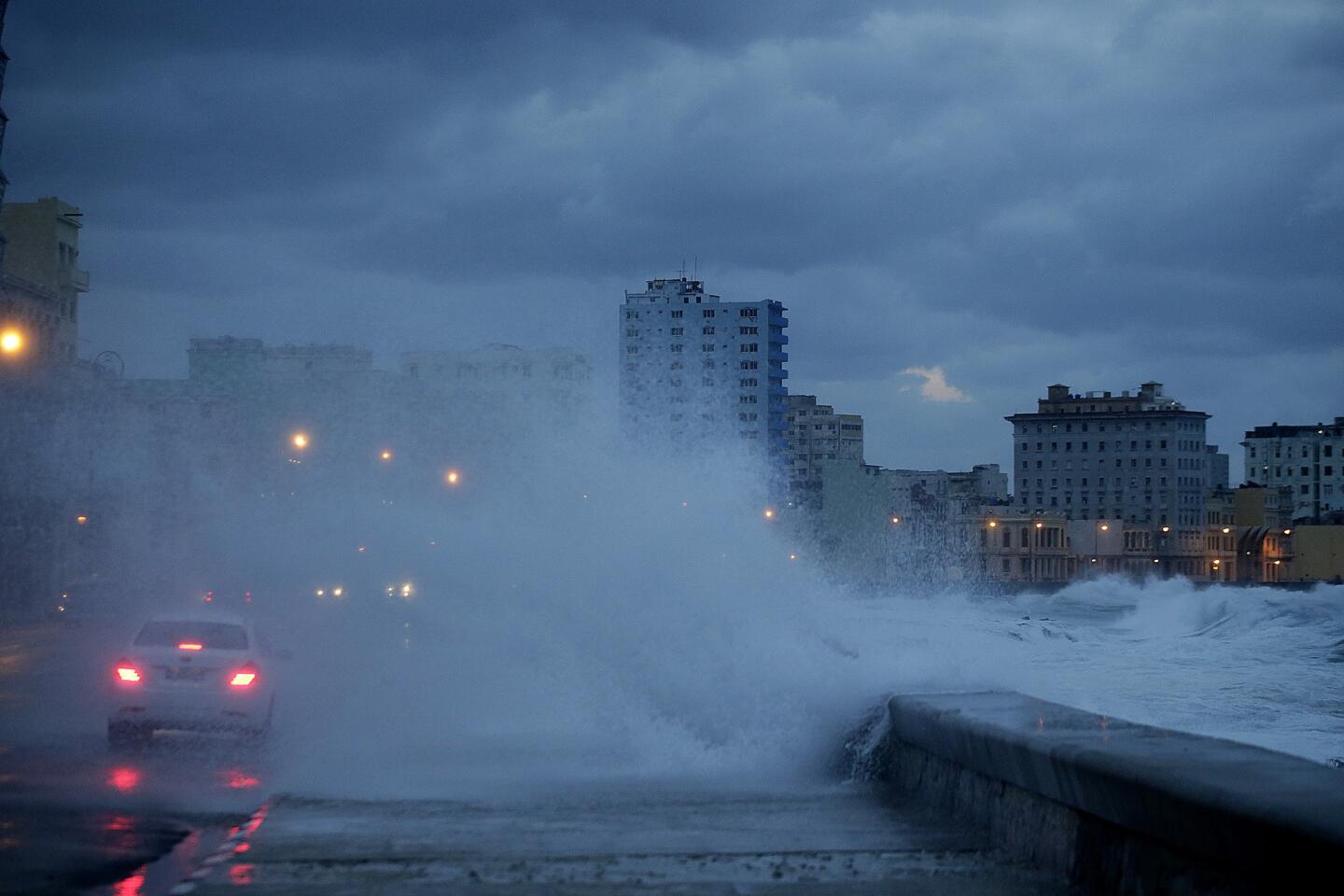Obama sees a path to human rights reform in Cuba, and it’s through Cubans’ wallets
- Share via
Reporting from Havana — President Obama will press for concessions on human rights from Cuban leader Raul Castro here on Monday, but he also hopes to plant seeds for something he considers more powerful than official statements: economic reforms to empower Cubans.
The White House strongly believes that if Cubans gain more spending power, they can loosen the government’s hold and improve their own lives with goods and services like telecommunications access. And it doesn’t hurt to open a new consumer market to U.S. businesses that’s just 90 miles offshore.
If Obama can encourage entrepreneurship, agriculture and telecommunications on the island, goes the White House theory, Cubans will be in a position to seize their own rights.
“The time is right. Obviously our intention has always been to get a ball rolling, knowing that change wasn’t going to happen overnight,” Obama told ABC in an interview here. “... We felt that coming now would maximize our ability to prompt more change.”
Political reforms are slow in the Communist system, where detention and harassment of activists go on amid U.S. pressure for greater freedom. And Cuban authorities remain adamant about changing at their own pace.
From nearly the beginning, the Obama administration has tried to puncture the Cuban government’s Communist system. In early 2009, the U.S. began allowing Cuban Americans to freely send remittances to relatives back home, putting cash – and power – in the hands of individuals.
Yes, many of those dollars ended up in the hands of the Cuban government, advisers to the president acknowledge, but first they passed through the hands of Cubans.
Mom-and-pop businesses, including restaurants, beauty parlors and car washes, have sprouted up all over Havana since Castro began allowing a measure of private enterprise. Obama took his family to dinner Sunday night at San Cristobal, a so-called paladar, privately owned restaurants that are key to Cuba’s emerging private sector. It opened about five years ago, according to the White House, under a government expansion of business licenses that began in 2010.
“More change has taken place on the economic side,” said Ben Rhodes, deputy national security adviser to Obama. “We believe continued reforms in different areas are ultimately going to be good for the Cuban people.”
Obama is under considerable pressure to push Castro on human rights while they meet Monday and attend a baseball game together on Tuesday. Since the U.S. and Cuba announced détente in December 2014, Obama’s critics have questioned whether the prisoner releases announced at the same time would be the only such gesture from the Cuban side. Four of the prisoners released then were even re-arrested.
Now many Republican and Cuban American members of Congress are dismayed that Obama would meet with the head of the authoritarian government at all, given its grave abuses of power.
It’s a criticism Obama has faced before as he has sought to expand diplomatic relations with authorities in China, Myanmar and Iran.
But at the heart of Obama’s foreign policy doctrine is a conviction that the U.S. must find ways to engage with even the harshest of regimes, partly because it is the only way to export American beliefs about justice and liberty.
“Change is going to happen, and I think that Raul Castro understands that,” Obama said in the ABC interview.
Freedom follows commerce, as supporters of Obama’s view see it. For evidence, they point to the changes in motion in Cuba, including Starwood Hotels and Resorts’ announcement that it will build in Cuba, the first U.S. company to do so in 60 years.
“Each time a new hotel opens, you have a new lobby with Wi-Fi in it,” said Dan Restrepo, Obama’s former Latin America adviser, who played a role in the president’s early Cuba policy opening.
A little connectivity will create demand for more, he said, recalling the fervor for the new government Internet hotspots he witnessed while visiting Cuba last fall.
“You could tell when you were driving through the hotspots,” said Restrepo. “There were all these people standing around trying to get a signal.”
That’s not just about opportunity for U.S. corporations, aides say. It’s about the free flow of information to a society once tightly shuttered to its northern neighbor.
Changes announced this month by the Treasury and Commerce departments are aimed at cultivating such commerce, including lifting some restrictions on bank transactions and re-initiating direct mail service.
Less noted was the easing of other rules, allowing the import of Cuban software and shipping of cargo from the U.S. to Cuba. The government is also adopting a licensing policy that allows import to the U.S. of more items from the Cuban private sector.
The initiatives are already meeting with pushback from the Cuban government despite its tentative willingness to bring more goods and money into the country. U.S. telecommunications are very interested in expanding cellular service and Internet capability in Cuba, but the Cuban bureaucracy hasn’t quickly warmed to those overtures.
Cuban officials realize what those changes could mean, said one U.S. official, adding that “they see what happens to closed societies who get greater connectivity.”
Still, the changes are hard to fence off entirely, said William LeoGrande, a Latin American specialist at American University and co-author of “Back Channel to Cuba: The Hidden History of Negotiations between Washington and Havana.”
“The Cubans have reached the conclusion they have to expand Internet access, they just don’t trust U.S. equipment,” said LeoGrande, noting the widespread belief in Latin America that U.S. agencies have used the Internet for subversive purposes. “So they just signed a deal with a Chinese company to provide some equipment.”
That strikes U.S. diplomats as progress, however incremental. When Obama is in Havana, his traveling entourage will use satellite and cellular service ramped up just for this purpose. Some of it is likely to spill over to Cubans, if only a few.
“They’re going to keep trying to cordon it off,” said Restrepo. “But the more there is, the harder it is to cordon.”
Cubans are nothing if not resourceful and have found numerous ways to get around limitations. Many, for example, have a kind of secondhand access to Internet material through thumb drives that artists, activists and students circulate among themselves.
Especially younger Cubans, raised in revolution but desiring a connection to the world, are constantly taking advantage of the little political space they can find, in the media, in the arts or through technology. And then they push boundaries, if delicately.
“It is more tolerated now,” said Ted Henken, a frequent visitor to Cuba and professor of black and Latino studies at Baruch College. “The government is constantly cracking down each time they cross a line, but the line is moving.”
Staff writer Tracy Wilkinson in Washington contributed to this report.
Twitter: @cparsons
ALSO
‘This is a historic visit and a historic opportunity,’ President Obama says in Cuba
What should President Obama do on his visit to Cuba? We have some suggestions
Unlocking Cuba: Visiting our long-forbidden neighbor
More to Read
Sign up for Essential California
The most important California stories and recommendations in your inbox every morning.
You may occasionally receive promotional content from the Los Angeles Times.
